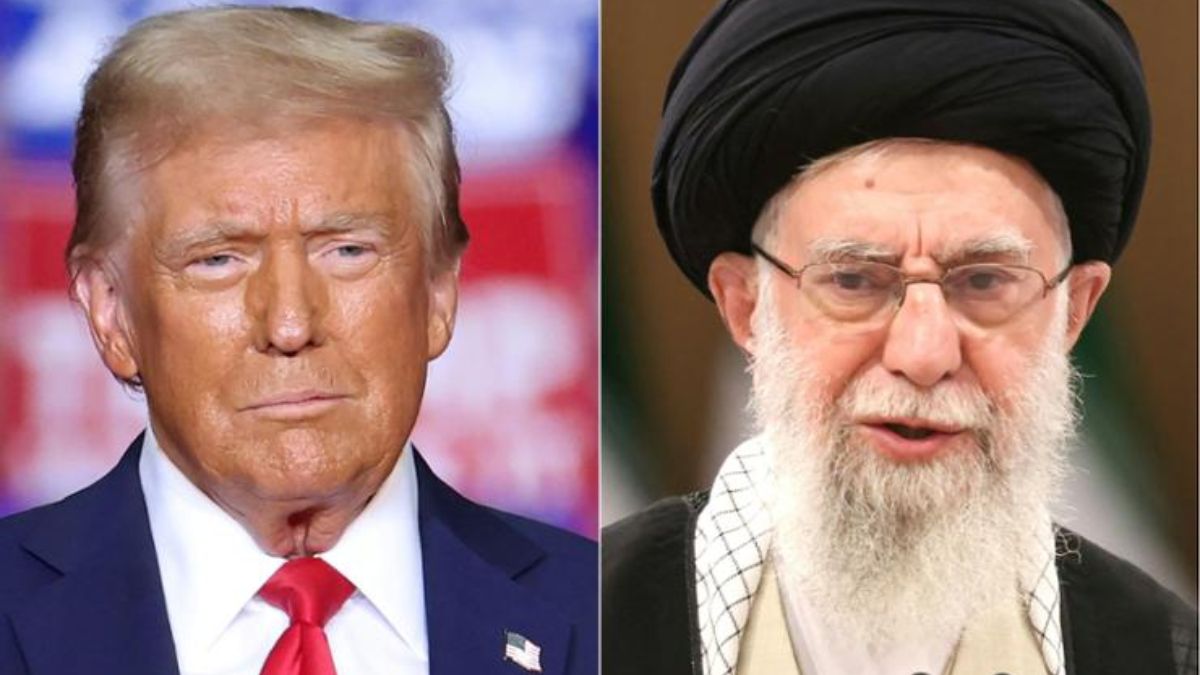U.S. President Donald Trump sent a letter to Iran’s Supreme Leader Ali Khamenei, seeking a new deal with Tehran to restrain its rapidly advancing nuclear program and replace the one he withdrew America from in his first term in office.
“I hope you’re going to negotiate, because it’s going to be a lot better for Iran,” Trump said in an interview with Fox Business Network broadcast on Friday.
“I think they want to get that letter. The other alternative is we have to do something, because you can’t let another nuclear weapon.”
The White House confirmed Trump’s comments, saying that he sent a letter to Iran’s leaders seeking to negotiate a nuclear deal.
“I would rather negotiate a deal. I’m not sure that everybody agrees with me, but we can make a deal that would be just as good as if you won militarily," Trump added. “But the time is happening now. The time is coming up. Something’s going to happen one way or the other.”
“The other alternative is we have to do something because you can’t let them have a nuclear weapon.”
Trump’s acknowledgment comes as both Israel and the United States have warned they will never let Iran acquire a nuclear weapon, leading to fears of a military confrontation as Tehran enriches uranium at near weapons-grade levels — a purity only sought by atomic-armed nations.
However, Iran’s mission to the United Nations said on Friday that no letter had been received from US President Donald Trump pressing for talks on preventing the development of nuclear weapons.
Impact Shorts
More Shorts“We have not received such a letter so far,” said a spokesman for Iran’s embassy to the UN after Tehran’s foreign minister told AFP Friday that the country would not negotiate so long as the United States applies “maximum pressure.”
Iran has consistently claimed that its nuclear program is intended for peaceful purposes, even as its officials increasingly hint at pursuing nuclear weapons amid heightened tensions with the U.S. over sanctions and with Israel, as a fragile ceasefire persists in the Gaza conflict with Hamas.
Since Trump’s return to the White House, his administration has repeatedly emphasized the need to prevent Iran from obtaining nuclear weapons. However, a recent report by the United Nations’ nuclear watchdog revealed that Iran has ramped up its production of near weapons-grade uranium.
Trump’s first term saw significant strain in U.S.-Iran relations. In 2018, he unilaterally withdrew the U.S. from the Iran nuclear deal with world powers, reimposing sanctions that crippled Iran’s economy. Tensions escalated further in 2020 when Trump ordered a drone strike in Baghdad that killed Iran’s top general.
Trump’s new approach to Russia, Iran
Trump has upended U.S. foreign policy after taking office in January, adopting a more conciliatory stance towards Russia that has left Western allies wary as he tries to broker an end to Moscow’s three-year-old war in Ukraine. Trump pulled out of the Iran nuclear deal, a multinational agreement to prevent Iran from developing nuclear weapons, in 2018, a year into his first White House term.
Last month, Trump restored his “maximum pressure” campaign on Iran that includes efforts to drive its oil exports down to zero. However, he also said he would like to make a deal with Tehran.
It is unclear how Trump’s overture to Iran would be received by U.S. ally Israel, an arch foe of Tehran. Iran and Israel mounted military strikes on each other last April and October.
The Israeli prime minister’s office did not immediately return a request for comment on Trump’s letter to Iran.
Russia has offered to mediate between the United States and Iran, a source briefed on discussions told Reuters on Tuesday, as the Kremlin vowed to do everything possible to facilitate a peaceful solution to tensions over Tehran’s nuclear program.
A call for diplomacy with Iran
After Trump quit the nuclear agreement in 2018, Iran began moving away from its nuclear-related commitments under the 2015 deal between Iran and key world powers, which lifted sanctions on Iran in return for restrictions on its nuclear program.
After taking office in January, Trump also directed his U.N. ambassador to work with allies to “complete the snapback of international sanctions and restrictions on Iran.”
Britain, France and Germany told the United Nations Security Council in December that they are ready - if necessary - to trigger the restoration of all the international sanctions to prevent Iran from acquiring a nuclear weapon.
It was not the first time a U.S. president has communicated with Iranian leaders. Under Iranian law, the supreme leader, not the president, has the last say on key state matters like Iran’s foreign policy and the nuclear program.
When U.S. President Barack Obama took office in 2009, he offered Khamenei direct engagement - provided Iran was serious about ending concerns over its nuclear program. Obama twice wrote directly to Khamenei, in 2009 and again in 2012.
Iranian officials in 2014 acknowledged that Tehran had replied to previous letters from Obama, though it was not clear who specifically had responded.
Iran confirmed in 2013 that President Hassan Rouhani had exchanged letters with Obama, confirming a rare contact between leaders of the two nations.
The United States and Iran cut diplomatic relations in 1980, after students and Islamic militants stormed the U.S. Embassy in Tehran and took American diplomats hostage.
With inputs from agencies


)

)
)
)
)
)
)
)
)



